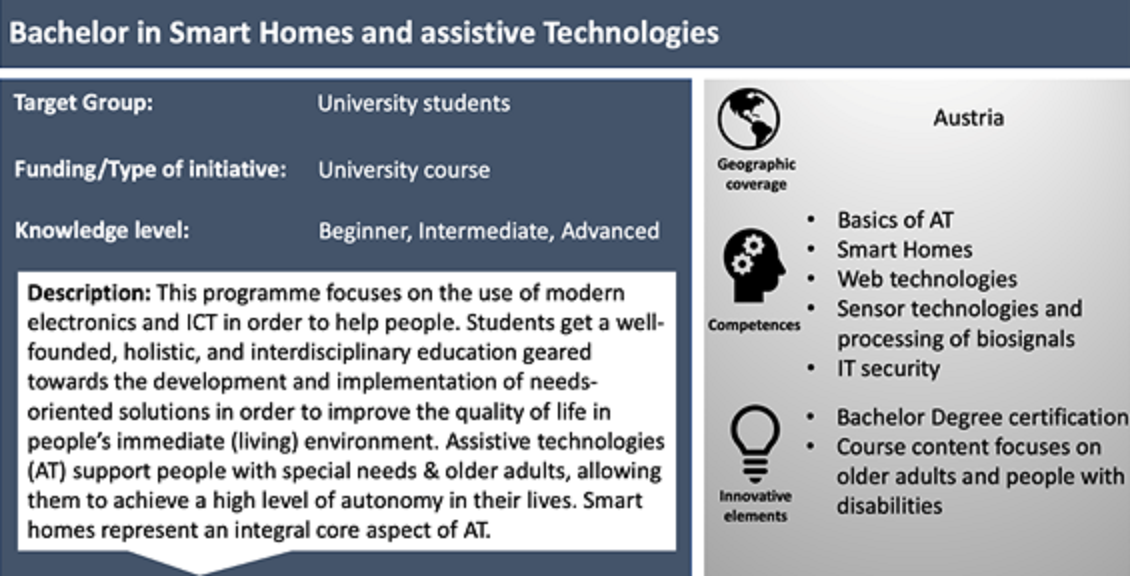Horizontal Issues
Welcome to the Horizontal Issues Knowledge Centre!
Here you will be able to find regularly updated database of theoretical and practical materials & resources on Horizontal Issues for service provision to people with disabilities, such as :
- Policy and Legislation
- Quality of Services
- Funding of Services
- Users' involvement and Co-production
PROJECTS
You'll also be able to find information related to several EASPD projects. At the moment, the projects available are:
CATEGORIES
You can also filter the glossary accessing the following categories of information:
Special | A | B | C | D | E | F | G | H | I | J | K | L | M | N | O | P | Q | R | S | T | U | V | W | X | Y | Z | ALL
A |
|---|
Analiza Experienței Individuale ale Persoanelor cu Dizabilități în Republica Moldova | ||||
|---|---|---|---|---|
Description The study implied conducting of 149 semi-structured interviews in several areas of Moldova. All experiences of the interviewees were analysed in terms of their division into eight large categories, namely: human rights, class, ethnicity, gender versus disability, systemic roots of discrimination, response to abuse and discrimination, reasons for not reporting the situations and interviewees’ recommendations. Reference | ||||
Analysis of the Individual Experience of People with Disabilities in the Republic of Moldova | ||||
|---|---|---|---|---|
Description The study implied conducting of 149 semi-structured interviews in several areas of Moldova. All experiences of the interviewees were analysed in terms of their division into eight large categories (themes), namely: human rights, class, ethnicity, gender versus disability, systemic roots of discrimination, response to abuse and discrimination, reasons for not reporting the situations and interviewees’ recommendations. Reference | ||||
Analysis of the Legal Meaning of Article 27 of the UN CRPD: Key Challenges for Adapted Work Settings | ||||
|---|---|---|---|---|
Description The document presents the analysis of the Article 27 of the UN CRPD and describes the key challenges that can be encountered in the implementation of the Article 27 in the working environment. Reference http://digitalcommons.ilr.cornell.edu/cgi/viewcontent.cgi?article=1559&context=gladnetcollect | ||||
Antreprenoriat Social | ||||
|---|---|---|---|---|
Description This article reports the importance of the Law on Social Entrepreneurship, adopted by the Parliament of the Republic of Moldova. This law was implemented thanks to a project focused on training NGOs about the concept and the importance of developing Social Entrepreneurship carreid out by the MOTIVATIE Association. Reference http://motivatie.md/index.php?pag=news&id=1060&rid=1237&l=ro | ||||
Assessing Your Collaboration: A Self Evaluation Tool | ||||
|---|---|---|---|---|
DescriptionBased on the studies of different scholars on the collaborative process and their suggestions, a self- evaluation tool was developed to assist existing and forming groups. This self-evaluation tool examines thirteen factors that can influence the collaborative process. The information gained from this tool can provide group members with an understanding of the strengths and challenges they face as they work to reach their goals. Referencehttp://www.joe.org/joe/1999april/tt1.php | ||||
Assessing your Collaboration: a Self-Evaluation Tool | ||||
|---|---|---|---|---|
Description A self-evaluation tool was developed to assist existing and forming groups. The tool is a self-assessment exercise allowing groups to rate their collaboration on key factors. Key factors examined here include goals, communication, sustainability, evaluation, political climate, leadership, community development and understanding community. With this tool, collaborative groups identified strong factors and challenging factors, that is, factors that need to be worked on. The identification of the challenge factors facing the group can assist in the development of strategies to address these issues, thus allowing the group to move forward and accomplish their goals. In all cases, the self-evaluation tool can be used to strengthen the collaborative group. The following is a description of the Collaboration Check-list. Reference | ||||
Attitudes and Creativity | ||||
|---|---|---|---|---|
Description Creativity is considered as a critical factor in organizational effecctiveness, still little research has been conducted. This article will present empirically supported models of the mechanisms by which specific attitudes directly contribute to and trigger creativity. These mechanisms are important for organizations to learn if they truly
desire to incorporate creativity into their culture rather than just
talk about it. Reference https://www.researchgate.net/publication/262069019_Attitudes_and_Creativity | ||||
B |
|---|
Bachelor in Smart Homes and Assistive Technologies | ||||
|---|---|---|---|---|
Description This Bachelor's programme, developped in Austria, focuses on the use of modern electronic and ICT in order to help people Assistive technologies (AT) support people with special needs and older adults, allowing them to achieve a high level of autonomy in their lives. Reference https://www.technikum-wien.at/en/study_programs/bachelor_s/smart_homes_and_assistive_technologies/  | ||||
Beginner's Guide to EU Funding | ||||
|---|---|---|---|---|
Description This publication provides an overview of EU funding opportunities and offers basic guidance on the application procedures for the financial period 2014-2020. Reference https://ec.europa.eu/budget/funding/index_en | ||||
